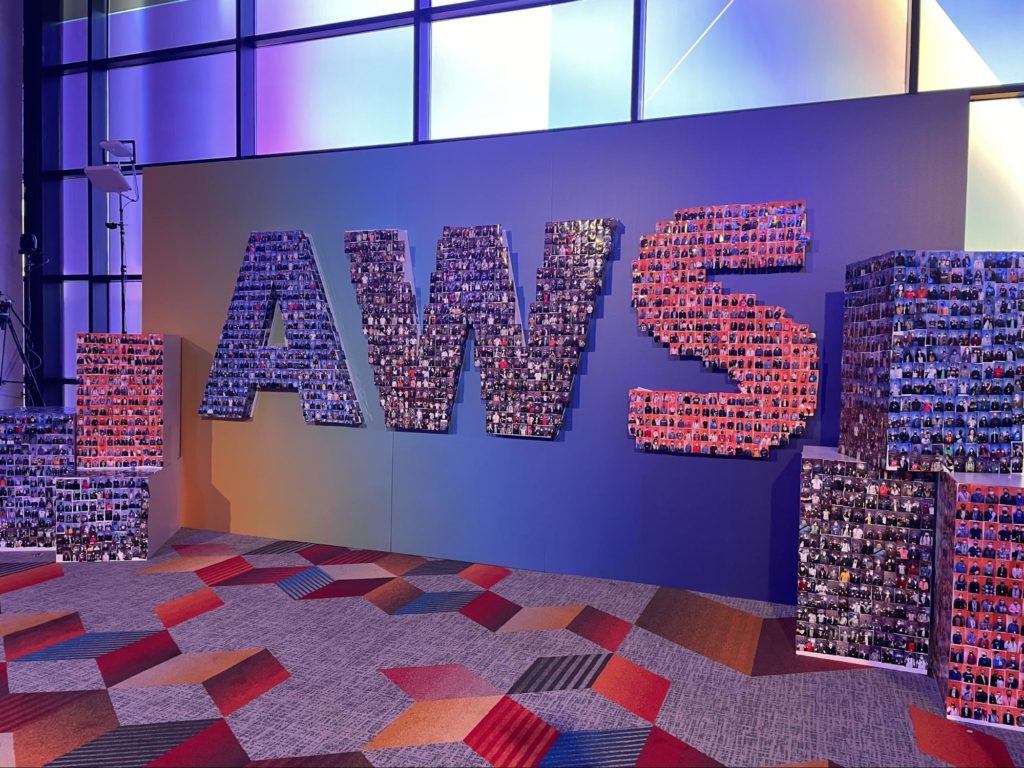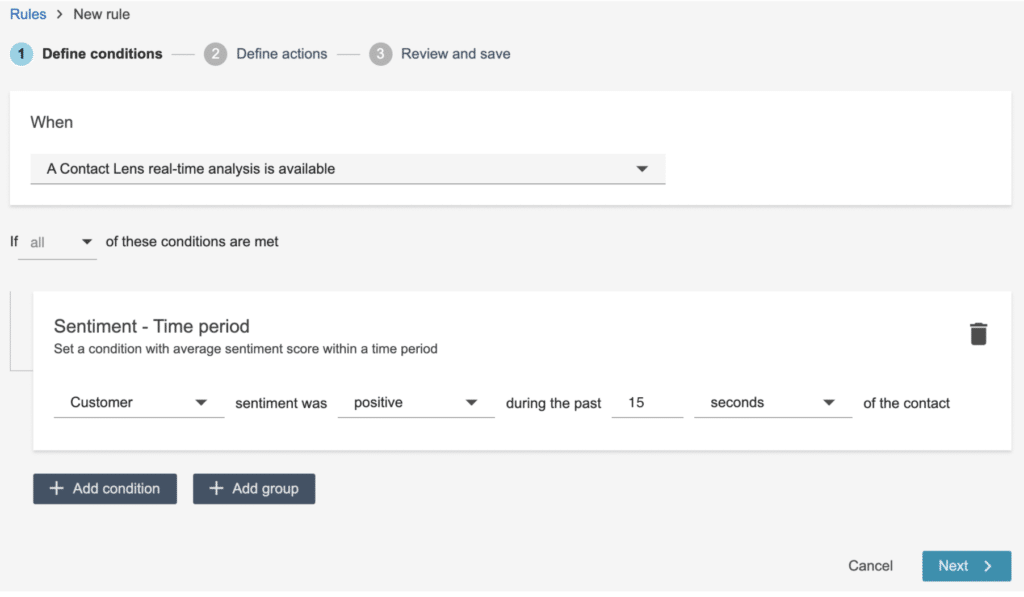5 Takeaways for Low Code from AWS re:Invent 2021
Last week was AWS’ 10th anniversary edition of the re:Invent conference in Las Vegas, NV. It was a nonstop week packed with keynotes, product overviews, hands-on labs, workshops and much more. The expo hall was abuzz with a tech community who was relieved to be participating at an event. It was my first time attending, and I’m glad I made it out for the experience.

While there, I paid special attention to how Low Code and business applications were represented within the greater AWS community. AWS is expansive in the scope of what it covers – well beyond just managing virtual servers on Amazon EC2 or data storage on Amazon S3. Over the years, AWS has been making strides to bring its service more into the hands of business users. I’ve laid out the top 5 takeaways for No Code and Low Code below:
1. AWS is building their own No Code app platform from the ground up with Honeycode
Amazon Honeycode is a beta product by AWS that was on display at a breakout session at re:Invent. Honeycode allows users to take data from spreadsheets and build secure forms and display interfaces, and link these together with drag and drop workflows. End users can use the Amazon Honeycode mobile app to interact with these forms once they are created.
I saw some code generation features that were unique – for example, you can easily generate a list of dropdown values from an existing data set. They also showed off a preview of the new Canvas functionality for providing more control over the UI design of the No code app.
I got to meet the product management team, and we had a good discussion about the inspiration and vision behind the product. It’s clear they’re approaching this from the ground up and not trying to be a clone of any specific tool out there. Honeycode is still pretty raw, especially compared to established no code platforms. It reminded me a lot of Salesforce in terms of the use cases it was targeting, but the price point is much more accessible than Salesforce licensing.
2. Amplify Studio will be a game changer for full stack apps
The most exciting new product announcement of re:Invent came during Werner Vogels’ keynote – Amplify Studio. Amplify itself has been out for a while, and acts as AWS’ version of Firebase – providing easy backend access for adding AWS services to web and mobile apps. Amplify Studio will allow front end designers and developers to use a tool they likely already use in Figma to lay out the front for their app, and then easily generate the React code that will integrate with the powerful backend services provided by Amplify such as storage, authentication, and data models.
AWS’s mission with Amplify Studio is to allow more developers to build like full stack developers. Existing front-end developers will have more guidance on how to work with the underlying data, and likewise existing backend developers will have a new option for quickly generating great looking apps without having to be an expert in styling and design.
3. Contact Lens provides very intuitive access to machine learning for contact center interactions.
I was able to attend a few labs and sessions featuring Amazon Connect for the contact center. One standout from the hands-on interaction was how seamlessly integrated machine learning tools are built into the Connect Platform. Contact Lens is the term AWS gives to the suite of tools used for monitoring sentiment and trends for customer service in real time. Connect provides the ability to set events on every call that are driven by Contact Lens observations. For example, using a simple set of dropdowns, an administrator can create an event that fires when the customer sentiment is detected as angry for 15 seconds.

Once you have this event, you can use the rest of the AWS platform to respond, perhaps with a Lambda function which will trigger some other action on a supervisor desktop, for example. Now, Lambda functions aren’t exactly “low code” and that’s where consulting companies like VPS can help with custom development, but the configuration of the Machine Learning rule itself is impressively intuitive. Connect itself still doesn’t come with a refined agent desktop UI, so additional custom development is required there as well.
4. Lex Automated Chatbot Designer will accelerate chatbot development
Another exciting product announcement was the Lex Automated Chatbot Designer. This tool, still in preview, will use machine learning to analyze existing chat transcripts, and generate a Lex bot that will know how to handle the most common requests by identifying intents and the necessary data collections steps.
This tool is useful for companies who have an existing chat tool and are looking to add in self-service or intent-based routing.
5. AWS is a pillar that many low code app providers are built upon
re:Invent was a great opportunity to connect with some of our existing platform partners – especially Appian and Salesforce. Appian’s tech foundation being based on AWS has been very clear for years. Appian sells access to the platform on AWS Marketplace as well. Some of Appian’s competitors were at the event as well – especially OutSystems and ServiceNow, so clearly Appian is not alone in its tech strategy.
A few other exhibitors are worth mentioning for Low Code. TalkDesk, who I originally met back in 2011, was there. They provide an easy-to-configure and easy-to-use contact center platform. I also came across Databricks who were advertising “Low Code Data” in their expo booth. I’d like to keep an eye on them going forward.
In conclusion, re:Invent 2021 was yet another driver of all of the exciting ways low code and no code are advancing opportunities for businesses in the current marketplace. VPS continues to look for new ways to support our partners and customers with the latest technology in order to stay on the forefront of these new advancements. Thanks for reading – if you’re interested in speaking before the next in-person meeting, schedule some time to meet with me.

